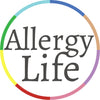How to Talk to Your Child's School about their Allergies?
By Allergy Life Australia Staff Writers
If your child has allergies, it's important to advise the school (to make the school aware) of these allergies to ensure they are safe at school.
This is a priority, especially if they are starting at a new school, beginning a new school year with unfamiliar teachers, classrooms, and students, or have had any allergic reactions at school in the past year.
You can make the school aware by setting up an 'Allergy Intro Meeting'. This meeting is crucial to clearly communicate your child's allergies for their safety and to understand how the school will manage allergy risks and reactions.
Who to meet?
The meeting should be made by the parents/guardians, and to meet with the principal/vice-principal, the child's teacher for the year (or year level co-ordinator) plus the school nurse and anyone who will be looking after your child.
When to request the meeting?
This meeting should be conducted before school starts or as early as possible. This meeting can also be held throughout the year if you find out that your child has allergies or if their allergies/needs change.
If you have already had an allergy meeting with the school in the past, it is good practice to have another at the start of each year. Reiterate the allergies, provide any updates about their allergies/ reactions and any activities like camp or food tech that may be in the school year.
What to bring to the meeting?
- An allergy action plan completed and signed by your child's doctor within the past year
- Medication that is for your child's allergic reactions (for both severe and less severe reactions). Tip: Depending on your child's school, you may need to provide the school with their medication. Place their medication into a clear and labelled bag, box or case for the school to safely store with instructions on what temperature to keep the medication and expiry dates.
- Your child's Allergy Alert- This is the alert they carry on them to show and tell others about their allergies. It can be an allergy card with allergy information on what they are allergic to and emergency information in the form of an allergy card stored in their smartphone, an allergy bracelet, a physical allergy card that they have in their pocket, etc.
- (If the school allows) Provide a treat box with safe non-food treats (such as stickers) and long-life food treats (if they have a food allergy) for the teacher to provide when other children are given treats. This can also be something for the school to use if your child has a food allergy and forgets their lunch at home.
What to discuss during the meeting?
- What policies and procedures are in place for minor and severe allergic reactions such as anaphylaxis in all school-based locations. Such as when in the classroom, playtime, excursions, and off-campus.
- How clearly the school introduces your child's allergies to people they will spend time at school with. This includes classmates, other students, teachers, parents, external personnel during excursions, etc.
- Where the medications are to be stored and accessed in an emergency.
- What the preventative school policies and procedures are when there may be possible allergens present. This includes what monitoring and risk management occurs during high-risk activities such as classes (windows, ventilation, storage of lunch, etc), arts/crafts, excursions, lunchtimes and class activities (cooking lessons, science experiments, etc).
- All the health needs for your child, including any other conditions and health requirements they may have.
- The ways (allergy intros) your child might describe an allergic reaction. This can be based on previous reactions or just how they communicate based on your experience with them.
- What is your child's Allergy Alert (allergy card, physical allergy card, allergy bracelet, etc) that they carry on them, and whether they can use it at the school. If they cannot use their allergy alert in school, what other option do they have to carry, show and tell about their allergies
- (If a food allergy and your child has cooking classes) How cooking classes are delivered and managed. How the teacher will make your child aware of all ingredients (including the ones they cannot eat) and how other students will cook safely to keep your child safe.
- How school staff will handle allergic reactions and when parents/guardians will be contacted about the reaction. Tip: If your child needs an Adrenaline Auto-injector to be administered in the case of a severe reaction, ask if there are staff trained on how to use it.
- Whether any scheduled activities are planned for the year, such as school camps, excursions and celebrations, that may place your child at risk and how to manage these risks.
- Whether parents will be notified ahead of time for any unplanned activities, such as excursions and celebrations, that may place your child at risk.
"If you don't get all the answers or don't feel reassured during the first meeting, ask the school if you can email them, have a phone call or set up a follow-up meeting to go through your concerns."
What to do after the meeting:
Immediately after the meeting:
- Give them a copy of your child's allergy action plan.
- Advise them on your child's allergy alert, and give them a copy of the allergy alert if there is a printed version or a digital version (email or text).
- If the school requires any information, medications supplied or treats, provide them to the teacher or office.
- Confirm who is the point of contact (email and phone number) at the school to ask any questions, provide updated medication, fresh treat boxes, etc.
In the future:
- Keep the school updated about any changes to your child's allergies and reactions. This includes medication changes.
- Set up a regular yearly meeting to stay up to date on policies, procedures, medication and allergies.
Having open communication with your child's school and keeping up to date policies and procedures is the best way to limit allergic risk situations, provide yourself with reassurance and ensure they can learn in a safer and happier environment.
If you need any further information on the above, please email us at contact@allergylife.com.au
---
The information provided on Allergy Life Australia is to generally educate and inform you about living with allergies, intolerances and conditions, and is not intended as medical instruction or as a substitute for diagnosis, examination and advice by a qualified health care provider.
Last Updated 16th Jan 2024




